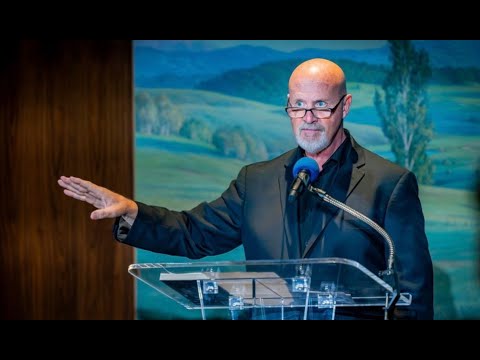“COVID hasn’t been very nice to us,” reflects Jedda Puruntatameri, who says Tiwi Islanders “have had a lot of problems” dealing with the flow-on effects of the coronavirus pandemic.
The remote islands, which sit just a 20-minute plane ride from Darwin in the Timor Sea, were some of the first Australian communities to be shut down from the outside world in 2020.
ABC News: Tiffany Parker
)Tiwi Islanders faced a choice: isolate on a remote island for months on end or, as a local leader put it, risk digging mass graves if COVID came to shore.
Unrelated to COVID, deaths did occur on Tiwi last year — with a deep sense of mourning filling the community.
And with travel forbidden to Darwin, the second home for many Tiwi Islanders who love to shoot across the Arafura Sea to the city for supplies, services and to socialise, 2020 took on that emotional complexion felt across the pandemic-shook world.
But one year on, the community is thriving.
ABC News: Tiffany Parker
)Last year’s shutdown of the island came on the eve of the Tiwi football grand final and art sale — an annual event that attracts thousands of tourists.
It’s a day of cultural celebration and immense economic stimulation on the islands.
ABC News: Tiffany Parker
)Tourists come by plane or boat and swiftly hit the art galleries. Then prodigious amounts of money — or contactless credit — changes hands with gusto.
For Tiwi artists, losing that critical windfall in 2020 was tough.
But the return of the masses on Sunday signals a turnaround for the communities renowned across the world for their art and culture.
ABC News: Tiffany Parker
)“Last year it was really quiet because of COVID-19, and now it’s really good that the visitors [have returned],” Michelle Woody says.
“It’s been really busy for the artists getting prepared for the art sale and also getting to meet lots of visitors.”
ABC News: Tiffany Parker
)As the art sale draws to a close, Jedda’s mind is on the afternoon’s local footy league grand final.
ABC News: Tiffany Parker
)“It’s one day in March we get to celebrate.
“It’s a community event. It’s where people come together,” adds Jedda, before a little boast about her own community on the islands.
ABC News: Tiffany Parker
)Jedda lists the catalogue of AFL stars from her home town: “Willie Rioli, Daniel Rioli, Maurice Rioli Jnr, they come from Pirliangimpi.
“There must be something in the water,” she suggest coyly.
ABC News: Tiffany Parker
)At Wurrumiyanga Oval, as the grand final teams prepare to take the field, a contemplative Connell Tipiloura awaits the match he’s triumphed in three times as a coach before.
“It’s been a big game … going back decades,” he says.
This year the grand final is played between the home-town Walama Bulldogs, who hail from Bathurst Island, and the Melville Island-based Imalu Tigers.
ABC News: Tiffany Parker
)ABC News: Tiffany Parker
)Connell must have been, if unintentionally, talking about the crowd, too.
At particularly acute moments of ecstasy or exasperation from spectators, the noise is ear-splitting.
ABC News: Tiffany Parker
)One thousand fans sounds like 10,000.
Tiwi Islanders have flocked to see their sons and brothers and cousins play in the big game — and they’re doing every they can to will them over the line.
ABC News: Tiffany Parker
)Sparked by goals from a Tipiloura and a Tipungwuti, the Bulldogs kick off to a flying start.
ABC News: Tiffany Parker
)The Tiwi grand final, as it is every year, is full of bloodlines of astonishingly talented footballers.
Famous Tiwi names like the Riolis and the Longs are ingrained in Australian cultural and sporting life.
ABC News: Tiffany Parker
)There is a Rioli playing, and also many other famous local footy names on the island like the Kantillas and the Puruntatameris.
While several Tiwi Islanders have gone on to achieve outrageous successes playing in the AFL, there are many that could also reach that level who stay on Tiwi and play in the local league.
ABC News: Tiffany Parker
)Elaborating on the widely-circulated ‘something in the water’ theory, Marius Puruntatameri has views of his own regarding the origins of Tiwi exceptionalism.
“[Football] been brought in by the priests that introduced the sport here and saw the enormous talent and ability that the Tiwi had, and the agility of the Tiwi,” he says.
ABC News: Tiffany Parker
)“The kids when they’re young, they just kick around a bit of plastic. As soon as they grow up they pick up something to kick around.
ABC News: Tiffany Parker
)“It’s natural talent, because some of the skills that we have in our culture, like spear-throwing and the hand-eye coordination, [it’s] like picking up skills from the back of your head — they can see.”
These abilities come in handy with a wet ball.
ABC News: Tiffany Parker
)And when the skies opened, the Imalu Tigers got rolling.
ABC News: Tiffany Parker
)Snatching the lead for the first time all game, the Tigers were ahead half way through the last quarter.
The travelling crowd, minutes from victory, hit fever pitch.
ABC News: Tiffany Parker
)But it was the Bulldogs and their home crowd that would not be denied, prevailing in a thriller by 11 points.
ABC News: Tiffany Parker
)The emotion that gets poured into this game does feel a bit like life-and-death, and the crowd reaction — the frantic rush of the field — squares with Jedda’s summation.
ABC News: Tiffany Parker
)Tiwi Islanders might paint on canvas, paper and bark, and sculpt with ironwood — but this is their live performance art.
This game of footy, as Jedda says, is life.
ABC News: Tiffany Parker
)ABC News: Tiffany Parker
)ABC News: Tiffany Parker
)ABC News: Tiffany Parker
)ABC News: Tiffany Parker
)





